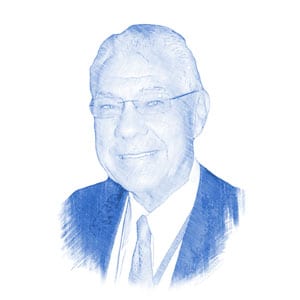Autism spectrum is a developmental disorder with a range or “spectrum” of differing skill and disability levels. Affected people have social problems—difficulty communicating and interacting with others, and controlling their emotions. Autism has carried a stigma in Israel where, until 2014, schools often expelled students for misbehavior due to a lack of special-education guidelines. Autism also excludes young Israelis from military service, hindering their integration into society and prospects for future employment.
But that’s changing. Israel is pursuing research, treatment and rehabilitation, and addressing the need to broaden social services and housing for about 8,000 people with autism. One of its most stunning breakthroughs is the Israeli Defense Force’s recruitment of autistic soldiers for its Satellite Intelligence Unit. The soldiers spend hours scouring complex satellite images for incremental changes that indicate suspicious objects or movements. The young encoders’ extraordinary visual recall and attention to detail have saved lives.
Created in 2012 by former Mossad Director Tamir Pardo, the program, dubbed “Seeing Beyond,” harnesses the unique brilliance of the autistic mind. About one in three people with autism combine cognitive and social challenges with “profound” skills that psychiatrist Darold Treffert calls “islands of genius.” Autistic “savants” are geniuses in music, the arts, math or memory—like the IDF soldiers in the visual intelligence unit. These soldiers also learn life skills, like using public transportation, to help them overcome social and communication challenges. Other interventions benefit and nurture lower-performing children and adults with autism spectrum. Perhaps Israel’s growing experience can help build bridges with the Palestinians.
Israel has long helped its Arab neighbors, even enemy combatants, with humanitarian medical aid. In Gaza, “there are no resources, no services, nothing for [autism sufferers],” said Palestinian researcher Mohammed Habash. In the West Bank, stigma and discrimination, poor education and social services, and war compound the problem, said Professor Sarah Dababnah. Local schools turn affected children away, so they stay at home. Families struggle with inaccurate diagnoses from untrained doctors, and no statutory social services or financial support exists. Nonprofits and a few dedicated advocates struggle to fill the vacuum, she said. Parents face emotional distress, with mothers often blamed for their child’s disability. Lacking early intervention, affected children grow up unable to communicate, use the toilet or feed themselves. Many try to hurt themselves or throw destructive tantrums. According to Habash, about 15 percent of parents think autism is a result of war between the Palestinians and Israel. Others blame watching TV, or simply have no understanding what’s wrong with their child.
Recently, Lifegate, an EU-funded, West Bank nonprofit, participated in an autism conference at Ziv Medical Center. Lifegate Director Burghard Schunkert called the cooperation with Israeli doctors, therapists and institutions “very heartening.” It’s important to keep up with the latest research, he said. “That’s why we’re here.”
But while shared research and resources are vital, there’s a thornier issue at stake. The IDF autistic soldiers’ unit is unique because of the mindset behind it—the value Israel places on human life, and its corresponding desire to see people reach their full potential.
But in the Palestinian territories, people are expendable—an attitude influenced by the officially sanctioned mindset of glorifying and inciting death by martyrdom or terrorism. That’s why parents don’t quibble when their children are taught, not to excel and prosper, but to stab and kill Israelis. Muslim reformer Islam al-Behery says a “change of heart” is the key to successfully bring Palestinians and other radical Islamists into the 21st century. If the Palestinians could see value in every life, perhaps they would spend less money supporting terrorism and invest in strengthening the most vulnerable of their own. Surely their hope and future would become better. This humanitarian need is another opportunity for Israel to be a model to its neighbors—by sharing knowledge and resources to enhance the quality of life. Israel is indeed changing the world for the better yet for this they receive little recognition and very little appreciation.
Reprinted with author’s permission from The Jerusalem Post





